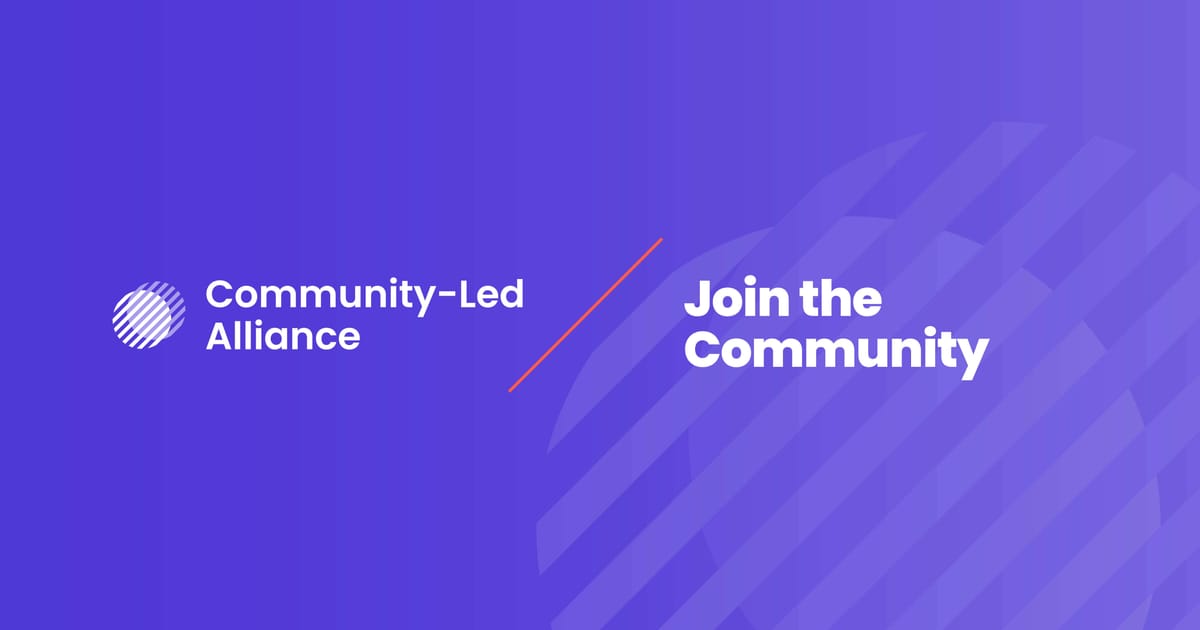Community management involves creating, growing, and nurturing a group of people united by shared interests or goals. Community managers play the crucial role of fostering engagement, building relationships, and ensuring the overall health of their communities. They act as the bridge between the organization and its members, facilitating communication, addressing issues, and promoting a sense of belonging.
As a result, project management skills are an invaluable asset for community managers. Project management is all about planning, execution, and the oversight of projects to achieve specific objectives.
For community managers, embracing project management skills into their toolkit can help them streamline operations, improve efficiency, and drive community growth.
In this article, we’ll explore the intersection of community management and project management, looking at the ways project management skills are essential for community managers to succeed.
We’ll delve into how these skills can help community managers foster growth and engagement within their communities to elevate their impact, and ensure their communities thrive.
The importance of project management skills for community managers
Project management is all about the structured planning, execution, and completion of specific tasks or projects to achieve set goals.
In the context of community management, project management is highly relevant as it provides a framework for organizing and managing community activities and initiatives.
Key project management principles that are relevant for community managers include:
- Goal setting: Clearly defining the objectives and outcomes of community projects.
- Planning: Developing a roadmap for achieving community goals, including task allocation, timelines, and resource management.
- Execution: Implementing the plan and coordinating activities to ensure objectives are met.
- Monitoring and control: Tracking progress, addressing issues, and making necessary adjustments to keep projects on track.
- Closure: Completing the project, evaluating outcomes, and looking at lessons learned for future initiatives.

Essential project management skills for community managers
Communication and interpersonal skills
Effective communication is essential for both project and community management. Community managers need to convey information clearly, listen actively, and facilitate open dialogue amongst community members. Strong interpersonal skills help build trust, resolve conflicts, and foster a collaborative environment.
Time management and organization
Community managers are always juggling multiple tasks and projects simultaneously. Time management and organizational skills are essential for prioritizing activities, meeting deadlines, and making sure all aspects of community management are handled efficiently.
Problem-solving and decision-making
Communities will face many challenges, from minor issues to significant crises. Community managers need to be adept at identifying problems, analyzing potential solutions, and making informed decisions. Strong problem-solving skills allow them to address issues effectively so community harmony can be maintained.
Leadership and team management
Community managers need to inspire and motivate their members, lead by example, and foster a sense of unity and purpose. Leadership skills involve guiding the community towards common goals, managing any teams like a group of ambassadors, and ensuring everyone stays engaged and feels valued.
Risk management and adaptability
Every community carries some level of risk. Effective risk management means anticipating potential problems, developing contingency plans, and being prepared to adapt as situations change. Community managers need to be adaptable so they can navigate uncertainties and turn challenges into opportunities for growth.
With these project management skills, community managers can enhance their ability to organize, lead, and grow their communities to ensure long-term success.
How project management skills help community managers grow their community
Strategic planning and goal setting
Effective community management begins with setting clear, achievable goals that align with the community's vision and mission.
Project management skills help community managers to:
- Establish specific, measurable, attainable, relevant, and time-bound (SMART) goals for community growth. This clarity helps in directing efforts and resources toward meaningful outcomes.
- Create comprehensive plans that outline the steps necessary to achieve community objectives. This involves identifying key initiatives, defining timelines, assigning responsibilities, and determining resource requirements. A well-thought-out strategic plan acts as a roadmap, guiding the community toward sustained growth and development.

Efficient resource allocation
Efficient resource allocation is crucial for maximizing the impact of community initiatives.
Project management skills enable community managers to:
- Identify and allocate resources, including community ambassadors, budgets, and tools, to ensure that each initiative has the necessary support to succeed.
- Make informed decisions about where to deploy resources to achieve the best possible outcomes. This involves assessing the needs of different projects and balancing competing demands to prevent resource shortages or inefficiencies.
Enhanced communication and collaboration
Strong communication and collaboration skills are essential for fostering a vibrant and engaged community.
Project management skills help community managers to:
- Implement effective communication strategies to keep community members stay informed and engaged, including regular updates, transparent sharing of information, and active listening to feedback.
- Develop and maintain positive relationships with community members and stakeholders. By fostering a sense of trust and collaboration, community managers can create a supportive and cohesive community environment.
Risk management and problem resolution
Communities face a range of risks and challenges that can hinder growth and development.
Project management skills equip community managers to:
- Conduct risk assessments to identify potential issues that could impact community initiatives to allow for early detection and mitigation of problems.
- Develop and implement strategies to minimize the impact of identified risks. This includes creating contingency plans, establishing protocols for crisis management, and being prepared to adapt as circumstances change.
- Use problem-solving techniques to address issues quickly and effectively so community managers can maintain stability and prevent disruptions to community activities.
Monitoring and evaluation
Monitoring and evaluating the progress of community initiatives is essential for ensuring continuous improvement and achieving long-term goals.
Project management skills enable community managers to:
- Implement systems to monitor the progress of community projects against set goals, including regular check-ins, progress reports, and using metrics to measure success.
- Evaluate the outcomes of community projects to determine their effectiveness and impact to identify opportunities for improvement, ensuring that future initiatives are more effective and aligned with community needs.
Integrating these project management skills into the community management toolset means community managers can drive more structured, efficient, and impactful community growth.
Developing project management skills in community managers
So we’ve already discussed why project management skills are so important for community managers to take onboard, but how does this work in practice? Here are some ways community managers can develop these skills.
Training and professional development
Continuously learning and enhancing skills is crucial for community managers to stay effective and adapt to evolving changes in the community landscape. Investing in training and professional development can significantly help community managers enhance their project management skills.
Ongoing education helps community managers stay updated with the latest project management methodologies and best practices, ensuring they can lead their communities effectively. There are various courses and certifications available that can equip community managers with essential project management skills.

Mentorship and peer learning
Mentorship and peer learning offer valuable opportunities for community managers to develop their project management skills through guidance and shared experiences.
Mentorship provides community managers with personalized support and insights from experienced professionals. Mentors can offer practical advice, help navigate challenges, and provide feedback on project management techniques.
Facilitating peer learning sessions, workshops, and discussion groups allows community managers to share knowledge, exchange ideas, and learn from each other’s experiences. This collaborative approach creates a culture of continuous improvement and mutual support.
Practical experience and hands-on projects
Gaining practical experience through real-life projects is one of the most effective ways for community managers to hone their project management skills.
Engaging in community initiatives and projects provides hands-on experience with project management practices. Community managers can learn by doing, applying theoretical knowledge to real-world scenarios.
Integrating project management techniques into everyday community management activities helps reinforce these skills. Things like creating project plans for events, using task management tools for organizing ambassador activities, and conducting regular progress reviews are all great ways to practice these skills.
Utilizing tools and software
Project management tools and software can help streamline community management processes to enhance efficiency.
There are many project management tools available that can assist community managers in organizing and tracking their projects. Some popular options include:
- Trello: A visual tool for managing tasks and projects using boards, lists, and cards.
- Asana: A project management platform that helps teams organize, track, and manage their work.
- Microsoft Project: A robust tool for project planning, scheduling, and resource management.
- Slack: A communication platform that supports collaboration and integrates with various PM tools.
To effectively integrate these types of tools into their workflow, community managers should select the ones that effectively align with their specific needs and community goals, provide training and support to community members on how to use them, and regularly review and update project plans and tasks using the tools to ensure they remain relevant and effective.
Focusing on training, mentorship, practical experience, and the use of project management tools means community managers can enhance their project management skills, allowing them to not only improve their ability to lead and grow their communities, but contribute to more successful community initiatives.
Final thoughts
Project management skills play a vital role in fostering community growth. By applying structured planning, efficient resource allocation, and effective risk management, community managers can lead their communities towards their goals more efficiently.
Combining community management with project management not only improves the effectiveness and efficiency of community initiatives but also fosters a proactive and organized approach to managing community challenges and opportunities.
By integrating these skills, community managers can create more vibrant, engaged, and resilient communities.
If you want to connect with other community or project managers, join our Slack community today!






